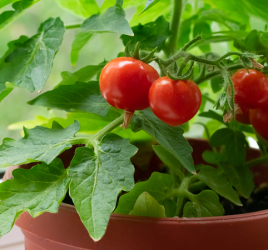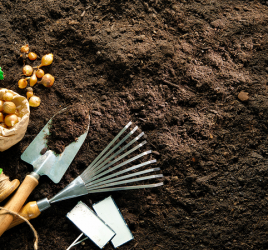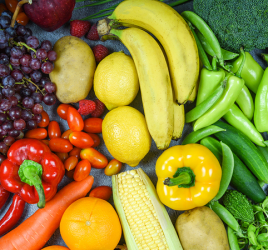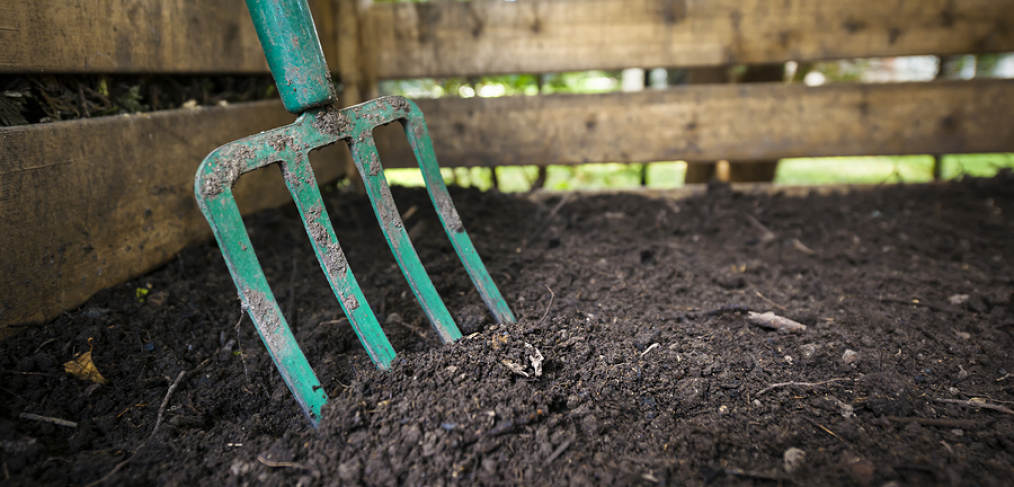
How to Compost Just About Anything – Gardening Tips & Tricks
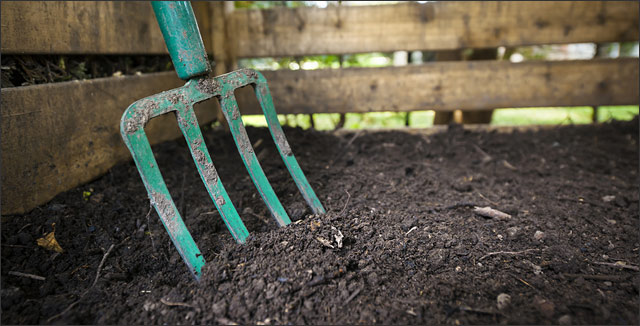
Have you ever wondered why some organic things aren’t supposed to be composted? Like kitchen scraps, meat, bones, spoiled dairy products, and bread?
It doesn’t seem to make sense. It’s all organic matter, right?
Yet, time and time again you see articles written about how you can’t compost those things. Furthermore, there’s a lot of information out there that tends to sound discouraging: you have to have the right amount of “brown” material and the right amount of “green.” You can’t compost paper, you have to make sure you turn it every day, and you have to keep it moist but not too wet. In addition, you have to ensure a “thermophilic reaction.”
I’m here to tell you, that it is too fussy for rotting organic matter. Why should we put anything in a landfill that can be harnessed for its nutrients to feed our gardens and ultimately, our bellies? That’s why I wanted to write about some of the myths and cold, hard facts about compost.
Sobering Facts About Landfills
First here’s some sobering information to remind us all:
- Americans throw out almost 40% of their food in landfills. That’s right, we put stuff that would turn into dirt in a year or two at most into plastic bags and put it in the ground where it will take many lifetimes to decompose.
- One Arizona landfill study found, among other things, “still-recognizable 25-year-old hot dogs, corncobs and grapes in landfills, as well as 50-year-old newspapers that were still readable.”
- This is the equivalent of 20 lbs of food, per person, per month
- Or $165 Billion per year
- This is because, for organic matter to biodegrade, it relies on an aerobic (oxygenated) process. Most landfills are packed tight, have little or no dirt or organisms (compared to the richness of microorganisms found in dirt, which will eventually break down everything), and don’t get stirred, ever.
Benefits of Composting
By contrast, if you turn your waste – and I do mean all kinds of waste – into compost, you will:
- Give your plants macro and micronutrients they may be missing from soil that has become depleted.
- Help the soil itself absorb and hold water and nutrients.
- Feed a variety of earthworms, beetles, ants and other bugs, which do amazing things for the soil and in turn bring a host of micronutrients back to your own table, if you’re growing your own vegetables.
- Improve the PH balance of the soil.
- Add beneficial bacteria and fungi to the soil.
Forget about the “Nitrogen robbing.” Bury your organic waste in the ground.
Okay, yes. If you have a big pile of sawdust from untreated wood or shredded paper, you probably shouldn’t bury that by itself in the ground. For one thing, they will take forever to decompose.
Simple Compost Tips
What are the simplest way to decompose cooked meat, bones, spoiled milk, and the like?
Dig a trench in your garden, dump it in, and cover with more dirt. This might not work if you have a small garden, but in general you CAN compost organic matter like this.
Burying it will eliminate the stink and how it attracts animals. This is the reason that stops experts from recommending you compost those things anyway.
Most organic matter doesn’t need just the right amount of anything. It is going to decompose no matter what you do. It is a shame to put it where it can’t be used at all.
Hot Compost Bins
However, if you are on a small lot or for whatever reasons don’t want the hassle of composting meat out in the open, you can opt for a hot compost bin.
Some of these bins come with a way to provide anaerobic and aerobic processes. They are best when they work together. Plus they contain the stink that spoiled dairy can cause. They are insulated to ensure that great thermophilic reaction that makes compost in just a few months.
If you’re the person above, this might just be your ticket. We recommend a quick Internet search of “hot composters.”
Here are a few other ideas:
Chicken Manure
Have you wanted to try keeping chickens? Free eggs? Cheap to feed? Chickens are made to forage. They do best when left to eat bugs, seeds, plants, and whatever else they can find. You can not only feed them your table scraps and bread (which takes longer to break down). They aren’t picky but you can add chicken excrement to your compost. It makes for a nice “green” nitrogen balance to all that “brown” sawdust you keep making.
Note: Experts advise using the “hot compost” recipe to destroy pathogens.
Yard Waste
Don’t get rid of your yard “waste.” Trees are nutrient factories. Those dead leaves are anything but devoid of nutrients. Add it to your compost pile. If you need to go by a few coffee shops to beg for their used coffee grounds (another nitrogen-rich source) to balance it out. I call that a win-win.
The Controversial Compost Option
I’m just going to add a controversial one for fun: human waste! Yes, you are able to compost human manure with care.
Experts state that using human waste is “risky business and requires a compost system that produces a high temperature and maintains the temperature long enough to kill bacteria and pathogens.”
If you are interested in this option, you may like to read Joseph Jenkins’ “Humanure Handbook” for more information. He lays out a two-year hot compost system using bucket sawdust toilets to make perfectly safe compost.
This is little bit off-the-grid for the likes of most people. It does illustrate the point that we use so many of our resources simply to flush away, or store, what could be perfectly usable nutrient sources at a fraction of the cost.
Take Away
Hopefully this has given you some compelling reasons to compost and encouragement that it doesn’t have to be done perfectly in order to be usable eventually. Additionally, take care to learn how to properly compost excrement to kill pathogens and bacteria. I hope you take this as your cue to start turning your scraps into brown gold!
For additional information on composting, see
Composting Strategies for the Busy Gardener

